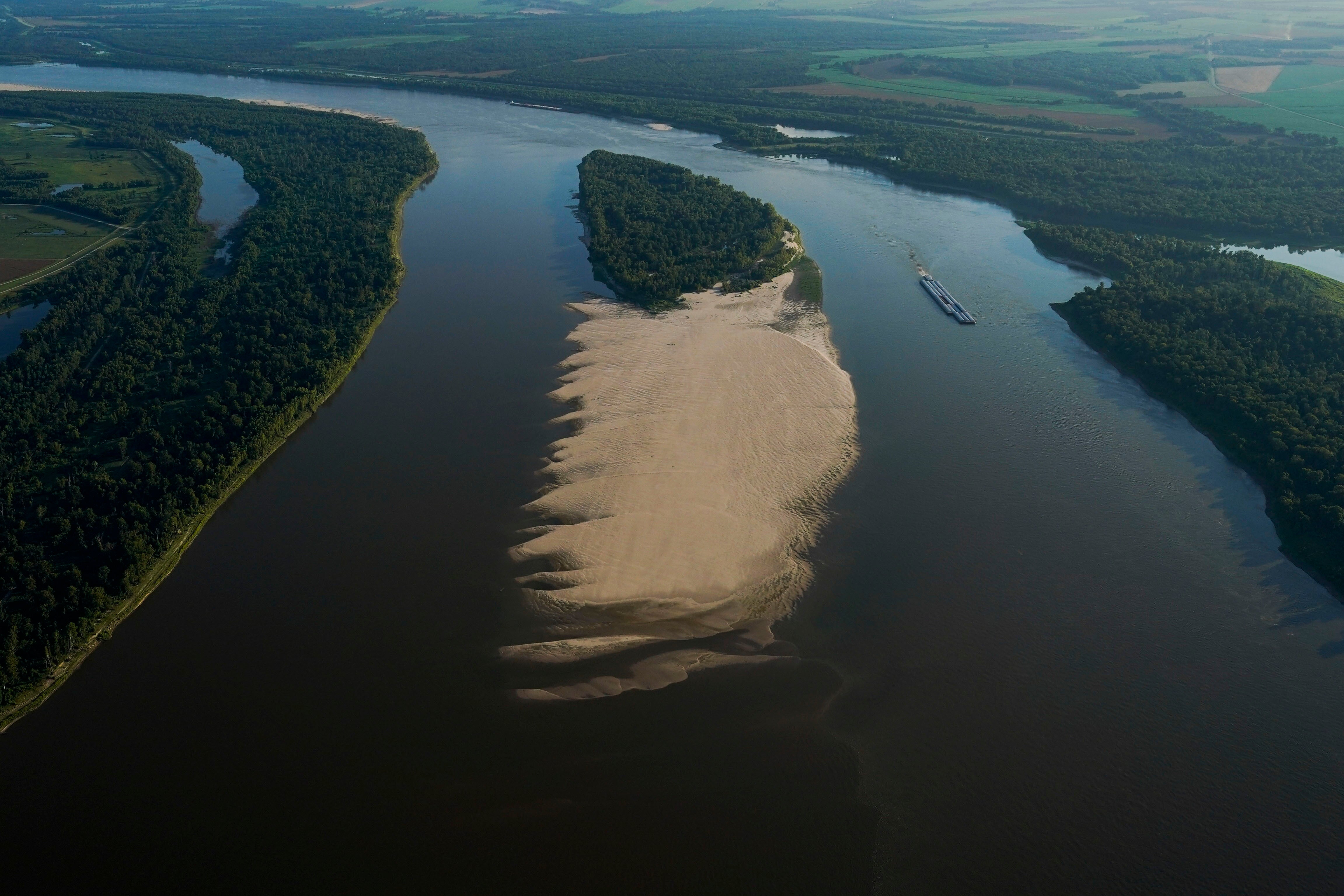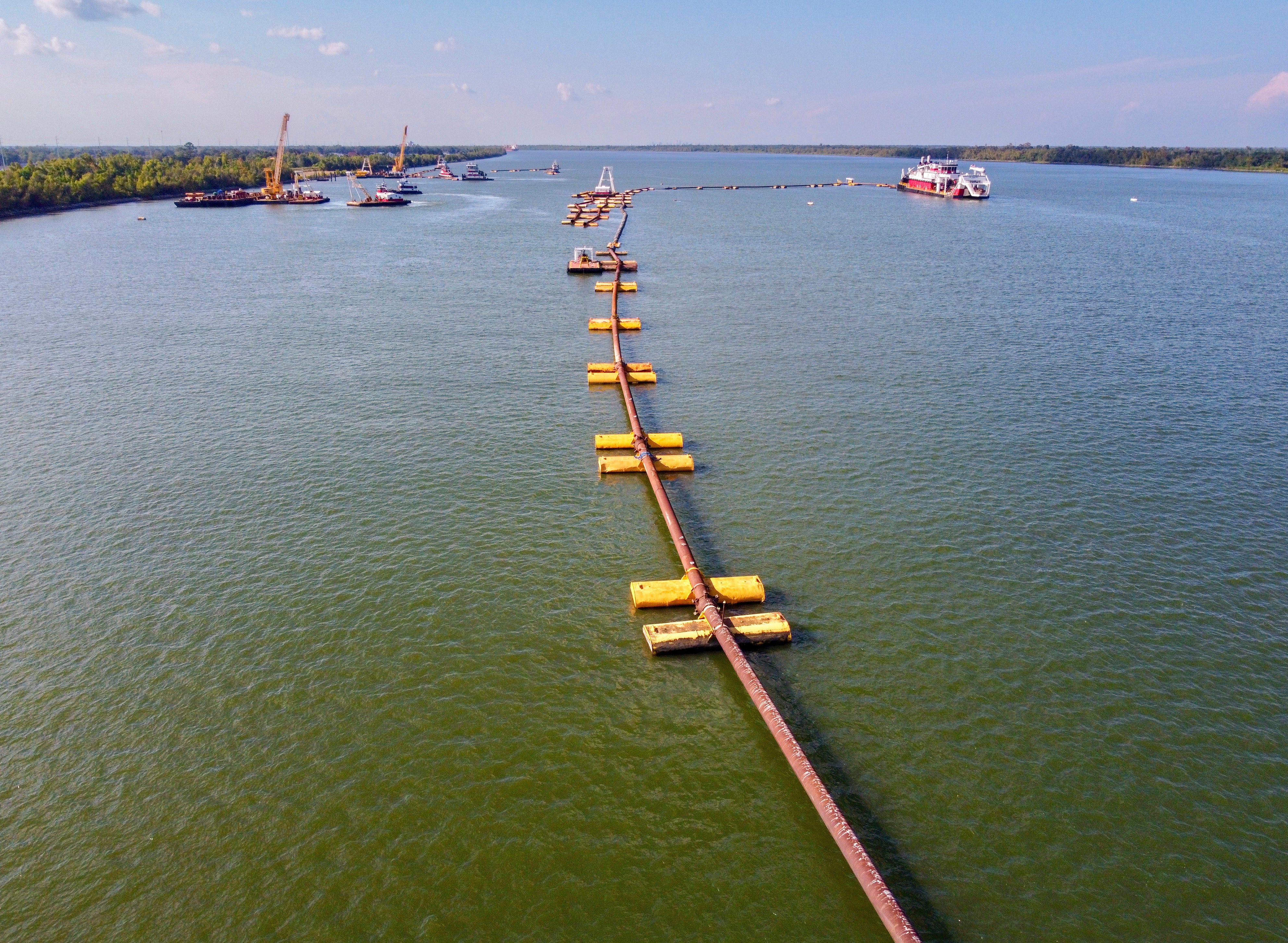New Orleans drinking water in crisis as saltwater intrudes on Mississippi River
The Mississippi River expected to hit record low water levels for second year in a row
Your support helps us to tell the story
From reproductive rights to climate change to Big Tech, The Independent is on the ground when the story is developing. Whether it's investigating the financials of Elon Musk's pro-Trump PAC or producing our latest documentary, 'The A Word', which shines a light on the American women fighting for reproductive rights, we know how important it is to parse out the facts from the messaging.
At such a critical moment in US history, we need reporters on the ground. Your donation allows us to keep sending journalists to speak to both sides of the story.
The Independent is trusted by Americans across the entire political spectrum. And unlike many other quality news outlets, we choose not to lock Americans out of our reporting and analysis with paywalls. We believe quality journalism should be available to everyone, paid for by those who can afford it.
Your support makes all the difference.New Orleans’ supply of drinking water has been thrown into crisis due to the threat of saltwater intrusion from the Gulf of Mexico on the rapidly-shrinking Mississippi River.
On Friday, Louisiana Governor John Bel Edwards announced plans to declare a state of emergency. The US Army Corps of Engineers has also laid out a timeline of when parts of the state’s southeastern region are expected to be impacted, and is transporting millions of gallons of freshwater to create a mix that is safe for use.
Some parts of Louisiana are already under a boil water advisory. Local governments have set up bottled water distribution centers and patients on dialysis or with kidney failure have been advised to consult with their physician.
The water crisis threatens to reach parts of New Orleans, a city of more than 370,000, by late October.
The Mississippi River is expected to hit record lows for the second, consecutive year and increase the chance of saltwater moving upstream.
Significant rainfall - needed to combat the heavy layer of salt - is not expected for several months, the governor said.
He warned residents against panic-buying of water.
“We’re being proactive. We’re applying best practices and lessons learned from the past,” the governor said, according to The Associated Press.
Mr Edwards said he would file an official request with the federal government to get more agencies involved in the response.
New Orleans’ mayor LaToya Cantrell has already signed an emergency declaration, while the city’s sewage board is analysing lead pipes throughout the city.
Mr Edwards said the emergency is just one of the climate-related challenges that Louisiana has experienced this year — as health authorities continue to grapple with a prolonged drought and above-average heat.

Residents in Lower Plaquemines Parish have been warned against using their tap water and bottled water is being distributed to the community.
Belle Chasse, St Bernard, Algiers, Gretna, West Jefferson, Carrollton and East Jefferson are expected to be impacted by October.
The Army Corps of Engineers is finishing a 25-foot underwater levee in the Mississippi in an attempt to prevent saltwater from contaminating drinking supplies.
The purpose of the levee is to increase water flow that will then push the saltwater back to the gulf.

“We are going to create a wall of mud to bring that depth up and what that will do is allow the fresh water to continue moving downward but it will impede the progress of the saltwater upriver,” Corps spokesperson Ricky Boyett told CNN.
“We are looking to have our initial capacity to transport approximately 15 million gallons of water next week and we will continue to increase capacity as the conditions continue,” Col Jones said, according to WWL-TV.




Join our commenting forum
Join thought-provoking conversations, follow other Independent readers and see their replies
Comments